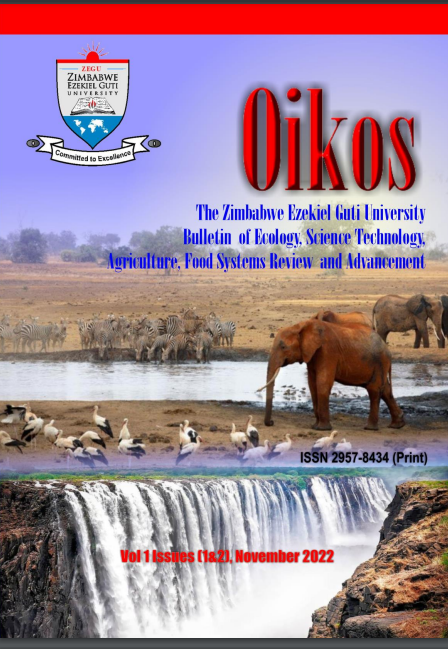The Housing Provision and Environmental Protection Dilemma A Cause-Impact Analysis of Urban Housing Development on Harare’s Wetlands
Keywords:
special economic zones, urbanity, environment, legislations, housing developmentAbstract
This article discusses the causes and impacts of urban housing development on wetlands in Harare. Being a local authority, the City of Harare has the mandate to provide housing for its inhabitants and at the same time protect the natural environment such as wetlands that are inherent in the city. Recent trends show that there has been a tradeoff between housing provision and wetlands protection. A qualitative research design, which entailed the use of interviews with town planners and environmentalists was used to gather data for this study. The data was analysed using content analysis. The study results revealed that fragmented legislation, lack of enforcement, deficient wetlands categorisation criteria, political interference, corruption and low wetlands prioritisation were the contributory factors for housing development on wetlands in Harare. Consequently, water retention capacity, flood attenuation strengths, biodiversity supporting services and spatial extent of the wetlands have been greatly affected. However, if these developments continue unabated, the residents of Harare will be affected by a serious water crisis and environmental problems such as flooding.




